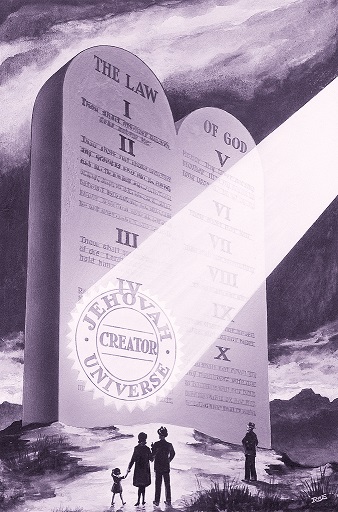Daily Lesson for Monday 29th of September 2025
Read Joshua 1:1-18. What can we learn about the structure of the book from this opening chapter?
The first chapter of Joshua serves as an introduction to the whole book. It comprises four speeches that correspond to the four main sections of the book: crossing (Joshua 1:2-9); conquering (Joshua 1:10-11); dividing the land (Joshua 1:12-15); and serving by obedience to the law (Joshua 1:16-18).
The book of Joshua can be seen as a series of divine initiatives. In each initiative, God gives a specific task to Joshua related to the conquest of Canaan, and each one is acknowledged later in the book after its successful completion.
In the end, the promises of God concerning the occupation of the land would be fulfilled. From then on, the responsibility of keeping the land lay in the hands of the Israelites and could be accomplished only by true faith and by the obedience that such faith always engenders.
God’s initiatives, expressed by the three verbs—“cross,” “take,” and “divide”—receive a proper answer in the people’s obedience, which derives from the final initiative: service.
Again, the book of Joshua has four major sections, each characterized by a specific concept expressed through the dominating presence of a Hebrew word:
-
Cross (Joshua 1:1-18; Joshua 2:1-24; Joshua 3:1-17; Joshua 4:1-24; Joshua 5:1-12)
-
Take (Joshua 5:13-15; Joshua 6:1-27; Joshua 7:1-26; Joshua 8:1-35; Joshua 9:1-27; Joshua 10:1-43; Joshua 11:1-23; Joshua 12:1-24)
-
Divide (Joshua 13:1-33; Joshua 14:1-15; Joshua 15:1-63; Joshua 16:1-10; Joshua 17:1-18; Joshua 18:1-28; Joshua 19:1-51; Joshua 20:1-9; Joshua 21:1-45)
-
Service (Joshua 22:1-34; Joshua 23:1-16; Joshua 24:1-33)
Thus, the structure of the book itself conveys its main message: God’s initiatives are not accomplished automatically. Instead, they require the faithful response of His people. That is, with all that God has done for us—including all that He has done for us that we cannot do for ourselves—we are then called to do what we can do for ourselves, which is to obey what God commands us to do. This is how it has always been in all of sacred history, and it remains so today. For example, the depiction of God’s end-time people in Revelation 14:12 conveys the same idea: faith in what God has done for us, which leads to obedience.
|
Think about some of the promises of God’s Word that are most precious to you. What kind of response do they require on your part in order for them to become reality? |
 (1)
(1)Source: https://ssnet.org/blog/25d-01-cross-take-divide-serve/




